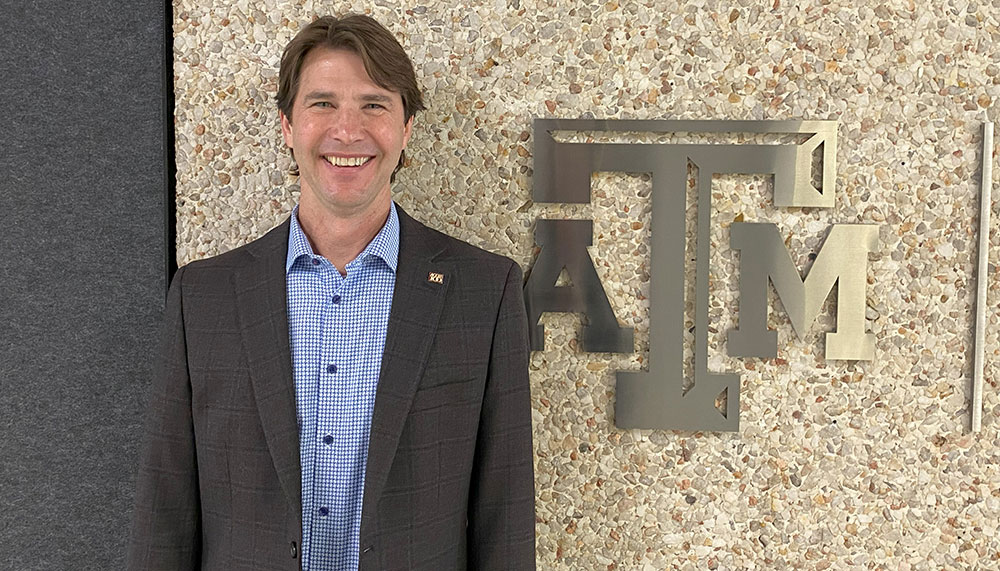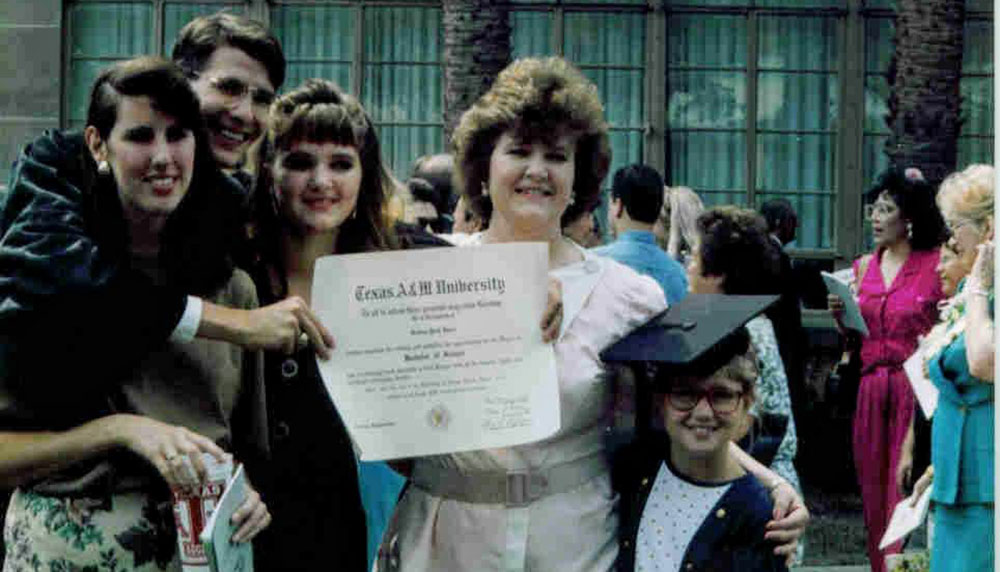
Paul Deere ’92 always dreamed of owning his own business and working for himself, but the path to get there was one he could never foresee. What began as a decision to leave a company preparing to transfer him out of state became a journey of failures and wins that ultimately resulted in a successful entrepreneurial endeavor — a company called Tolteq that specialized in innovative technology and reliability in Measurement While Drilling (MWD) tools for the upstream segment of the oil and gas industry (those who execute exploration and production activities such as creating geological surveys and drilling).
MWD tools provide the navigational system for directional drilling along with downhole geological information, allowing measurements to be sent to the surface in real time so that drilling operators can properly steer the drill bit during the drilling process.
Initially, Deere set his sights on utilizing his degree in electrical engineering and his prior experience in the oil and gas industry to design downhole tools for other companies as a contract engineer. When a potential customer called him asking for assistance with repairing existing MWD tools, he was initially uninterested. He eventually decided to accept the work, resulting in his business becoming a downhole tool repair company. Through the repair process, he quickly learned the shortcomings of MWD tools at the time.
“That's really when I started thinking like an entrepreneur,” Deere said. “I started thinking, ‘You know, this is a real big pain point for these guys. These tools are failing. They don't know why, and there's no information that can tell them why. If I could figure out a way to understand what's going on, we can improve these tools and ultimately lower drilling costs.’”
Drilling operators drill for oil and gas deep below the surface of the Earth. If drilling tools fail during the process, operators must pull up thousands of feet of pipe, build an entire new drilling assembly and put thousands of feet of pipe back into the Earth. This process takes many hours to complete, costing the operator over $30,000 for each downhole tool failure. Considering multiple tool failures per job and the cost of labor and equipment, directional drilling was too expensive to become a routine practice for much of the industry in the early 2000s.
Deere decided to use this information as a catalyst to design his own full MWD system with additional sensors and memory to provide detailed information about what was happening downhole. This downhole data was combined with information collected on the surface of the drilling rig. Software was then developed to create a full picture of activities and events from the surface to the bottom of the well bore.
“We were basically developing big data techniques for oil and gas drilling before the idea of big data had taken off,” Deere said.
To introduce his concept to the market, he asked his MWD repair clients if instead of just repairing the faulty tool sent in, he could replace the board with his own design that had additional features, which many allowed. His designs proved very successful, but he still could not get directional drilling companies to purchase his full MWD system. Upon interviewing potential customers, he learned that his customer base was much more comfortable purchasing expensive downhole tools from larger companies instead of a small company no one, including their clients, had ever heard of.
“I thought, ‘If I could just show people what this does and the improvement that we can make in drilling, then I think people would buy it,’” Deere said.
With that, Deere began offering his system and the data gathered from it for free just to gain increased exposure. He worked on drilling rigs across the country, continually refining and improving his designs. Many people in the field were impressed with his new MWD system, but sales were still slow.
We were basically developing big data techniques for oil and gas drilling before the idea of big data had taken off.
One day, he received a call to bring his MWD system to a drilling site in the Texas Panhandle, which was having trouble completing drilling operations due to multiple downhole tool failures. During the job, his tools failed, and the company halted the use of Tolteq’s MWD system. Even though the tools were destroyed in the process, Deere was still able to view and analyze the data from the memory in his system, which alerted him of the problem — the drilling operator was putting too much weight on the drill bit, which caused it to bind at the bottom of the hole and fail.
Deere left the job site but was called into a meeting with the Panhandle area’s superintendent a few weeks later. The superintendent was very impressed with the amount of data the Tolteq MWD tools acquired and the report that was generated. He then informed Deere that they ended up drilling with less weight as suggested, had no further problems and were able to successfully complete their job. As a result, the superintendent specified that on all his future jobs, he required the MWD tools to have the data and reporting capabilities only Tolteq could offer. It was the big break Deere was looking for.
Because of Tolteq’s patented MWD technology, it became known as the premier independent MWD tool in the country and was a huge success. Ultimately, Tolteq was acquired by National Oilwell Varco in 2016, and Deere went on to establish several other companies as well as increase his time volunteering.

As an undergraduate, Deere joined the Department of Electrical and Computer Engineering as a first-generation Aggie from a single-parent household. Reflecting on the experience, he felt his time at Texas A&M greatly paralleled his entrepreneurial endeavors in industry.
“I knew I had to fund my college expenses myself,” Deere said. “I knew that everything was on the line and that I had to do well, so I worked hard and studied hard in the same way that entrepreneurship requires.”
Deere encourages other students with an entrepreneurial spirit and desire to do the same — work hard, take notice of something that is a common struggle, be persistent in eliminating that pain point, and above all, be positive.